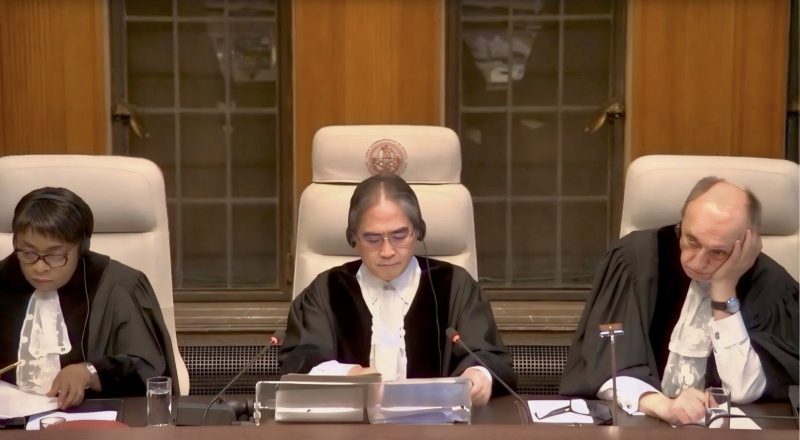The Federation of Somali Trade Unions (FESTU) applauds the principled and courageous position presented by the Federal Republic of Somalia before the International Court of Justice (ICJ) in The Hague on 8 October 2025. The Court, which is the principal judicial organ of the United Nations, held public hearings on the request for an advisory opinion concerning the Right to Strike under ILO Convention No. 87. Somalia took a clear and authoritative stance, affirming that the right to strike is an indispensable and inseparable component of freedom of association guaranteed under the Convention.
Her Excellency Ambassador Khadija Osoble Ali, Somalia’s Ambassador to Belgium, the Netherlands and the European Union, delivered an eloquent and compelling statement before the Court. She firmly asserted that the right to strike is a fundamental part of freedom of association and is fully protected under Convention No. 87. The Ambassador underlined that without the right to strike, workers’ organisations would be rendered powerless to defend the interests and dignity of their members, making freedom of association meaningless in practice.

Ambassador Osoble stressed that Somalia’s position is rooted in its constitutional guarantees, national legislation and international obligations. Article 24 of the Constitution of the Federal Republic of Somalia explicitly grants every worker the right to strike. This constitutional protection demonstrates Somalia’s long-standing belief that the right to strike is essential for ensuring genuine freedom of association, balanced industrial relations and social justice.
She further explained that Somalia’s recently adopted revised Labour Code, the first modernisation of national labour legislation in over five decades, enshrines the right to strike and provides clear and enforceable mechanisms for its lawful exercise. The revised Labour Code was developed through close cooperation between the Federal Government of Somalia, the Somali Chamber of Commerce and Industry (SCCI) as the employers’ representative body and the Federation of Somali Trade Unions (FESTU), with technical guidance from the International Labour Organization (ILO). This historic law ensures that the right to strike is not just a theoretical principle but a practical and enforceable reality for Somali workers, drawing directly from the spirit and intent of ILO Convention No. 87.
Ambassador Osoble also reminded the Court that since Somalia’s ratification of ILO Convention No. 87 in 2014, the country’s tripartite partners have worked closely with the ILO to harmonise domestic law with international labour standards. This process of domestication ensures that the Convention’s guarantees, including the right to strike, are firmly embedded in Somali law and actively upheld across workplaces and institutions.

FESTU commends the Federal Government of Somalia for defending the voice of workers on the world stage and for standing firmly on the side of international justice and workers’ rights. This decisive position reflects the success of strong and constructive social dialogue on this matter between FESTU and the government in shaping a unified national approach to labour standards and social dialogue.
“Somalia’s bold intervention before the ICJ sends a powerful message to the world that our nation stands for justice, fairness and respect for international labour rights,” said Omar Faruk Osman, General Secretary of FESTU. “In the spirit of social dialogue, we are proud to have worked hand in hand with the government to ensure that Somalia’s position reflects both our national and international obligations to defend the right to strike as an inseparable part of freedom of association. This moment is not only a victory for Somali workers but also a significant contribution to the global trade union movement.”
FESTU reaffirms that the right to strike is a cornerstone of democracy, equality and social progress. It ‘s the most powerful tool workers have to protect their livelihoods, improve working conditions and pursue justice. By defending this right before the world’s highest court, Somalia has set an inspiring example of leadership and reaffirmed its commitment to decent work, fairness and the values of the ILO.
FESTU expresses its appreciation to the International Labour Organization’s Governing Body for seeking this advisory opinion and trusts that the ICJ’s eventual ruling will confirm that the right to strike is a universal and indivisible element of ILO Convention No. 87.
